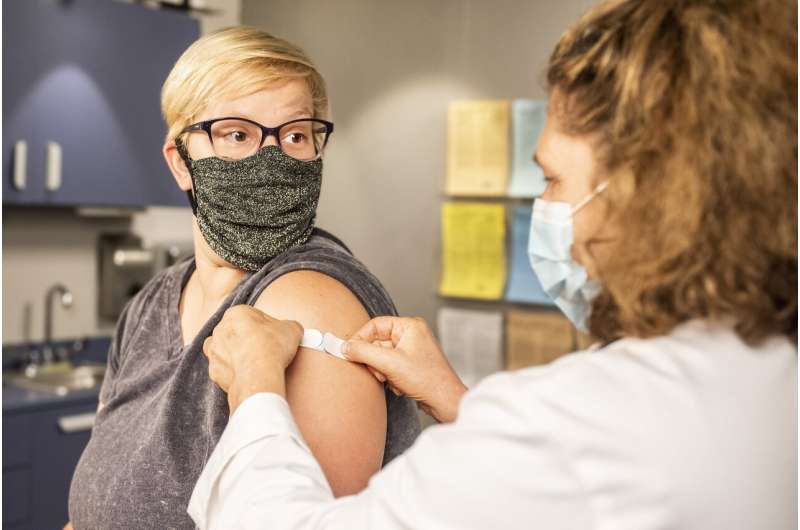
mRNA COVID-19 vaccines offer substantial protection from infection by the novel coronavirus, SARS-CoV-2, in the “real-world,” concludes a large study carried out at six regions across the U.S. including Salt Lake City, Utah. The performance of the vaccines was consistent with their performance in closely controlled clinical trials that led to their approval for emergency use.
The results are particularly noteworthy considering that participants in the study were amongst those at highest-risk for being exposed to the virus, the researchers say. These included health care workers, first responders and essential workers who routinely come in close contact with the public as a routine part of their job.
“There are usually differences in how well interventions perform in clinical trials as compared to real-world settings,” explains Sarang Yoon, D.O., assistant professor at the University of Utah Rocky Mountain Center for Occupational and Environmental Health (RMCOEH) and principal investigator of the RECOVER (Research on the Epidemiology of SARS-CoV-2 in Essential Response Personnel) study in Utah. In this case, the results support a large body of evidence, from clinical trials and other research, showing that COVID-19 vaccines are very safe and effective.
“This research is showing how well these vaccines work,” says Yoon.
The study published on March 29 in the Morbidity Mortality Weekly Report (MMWR) from the Centers for Disease Control and Prevention.
The study showed the mRNA COVID-19 vaccines were:
- 90% effective at reducing risk for infection once participants were “fully” vaccinated, two weeks after the second dose.
- 80% effective at reducing risk for infection after “partial” vaccination, two weeks after the first dose (before the second dose was given).
Among those fully vaccinated, there were only three infections among 2,479 workers and no severe COVID-19 infections or deaths in people who were vaccinated. This is much lower when compared to the period when participants were not immunized, 161 infections were identified.
The authors note that even though the vaccines were highly effective after one dose, it is not known how long that immunity lasts. The CDC recommends two doses of the Pfizer-BioNTech and Moderna vaccines.
3,950 study participants submitted samples for COVID-19 tests on a weekly basis for 13 weeks between December 14, 2020 to March 13, 2021. During that time, 2,479 participants have been fully vaccinated, receiving two doses of either the Pfizer-BioNTech or Moderna mRNA COVID-19 vaccine. In addition to submitting samples for COVID-19 test, participants reported weekly whether they had COVID-like symptoms including fever, shortness of breath and loss of taste or smell.
Study participants were:
- Health care workers (e.g., physicians, nurses, medical assistants),
- First responders (e.g., firefighters, police officers, staff at correctional facilities), and
- Frontline and essential workers (e.g., teachers, hospitality, retail, restaurants, airlines).
Results from COVID-19 tests and surveys also showed that among those who tested positive for SARS-CoV-2, 87.3% had COVID-19 symptoms and 10.7% were asymptomatic.
“We are incredibly grateful to our participants for their time and dedication to the study.” says Yoon. “With their help, we will be able to better understand COVID-19 vaccine efficacy and COVID-19 illness.”
The RECOVER study is ongoing and results from future phases will help determine how long COVID-19 vaccines protect against infection and the real-world effectiveness of newer vaccines.
The research will also investigate how well COVID-19 vaccines protect against new variants of the SARS-CoV-2 virus that are highly transmissible and are now circulating in the U.S.
Source: Read Full Article
